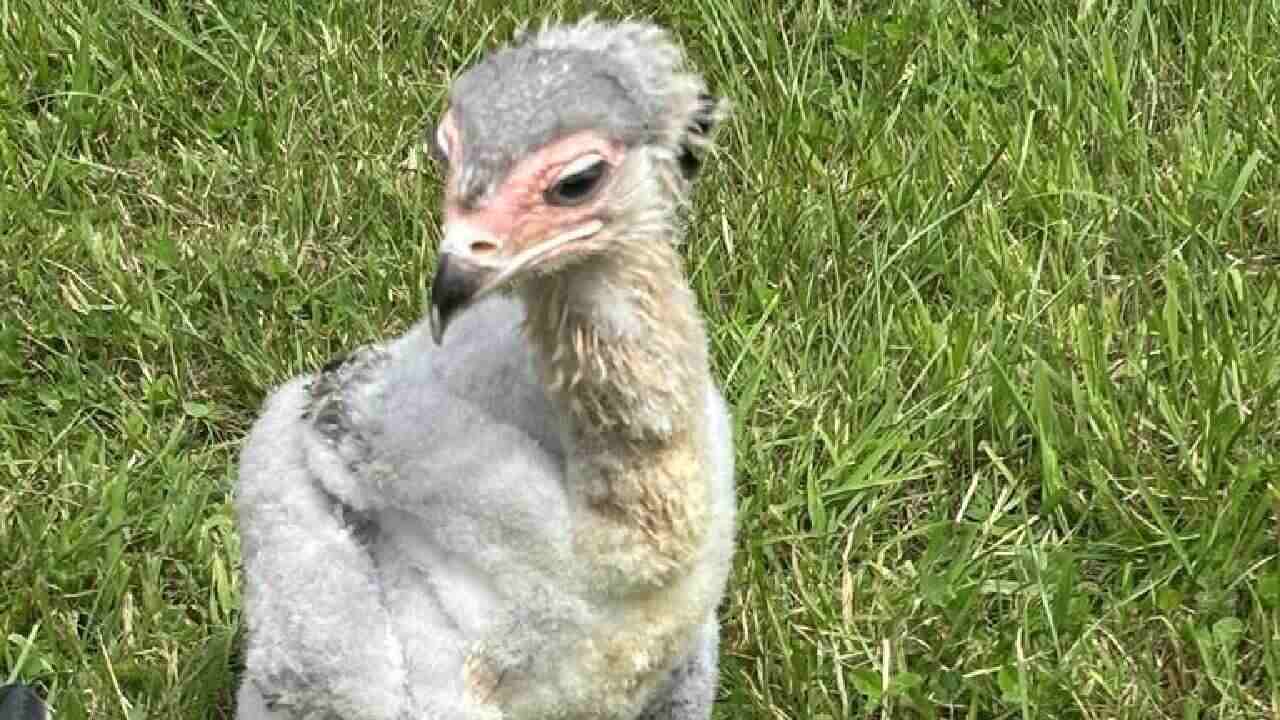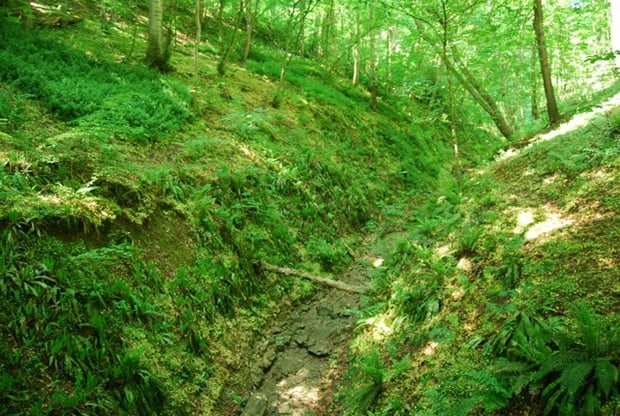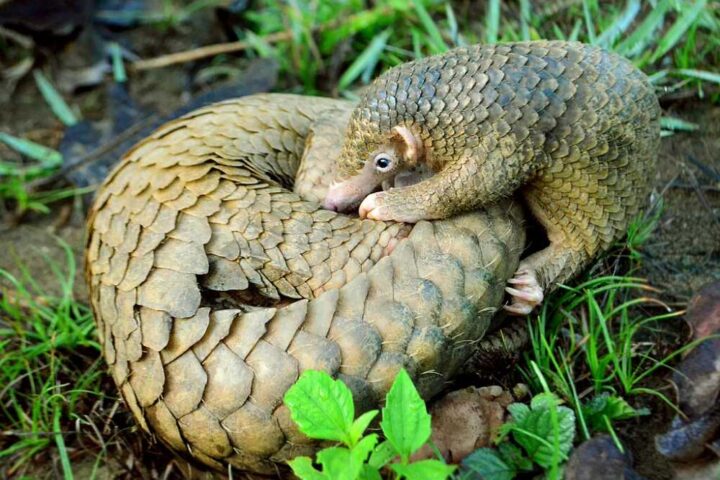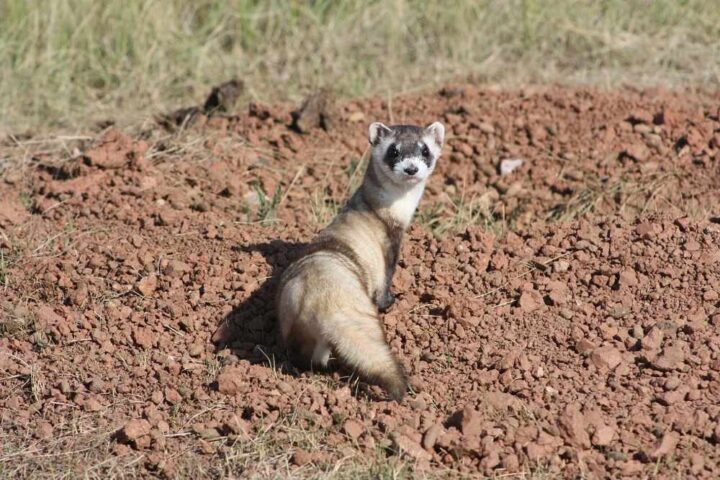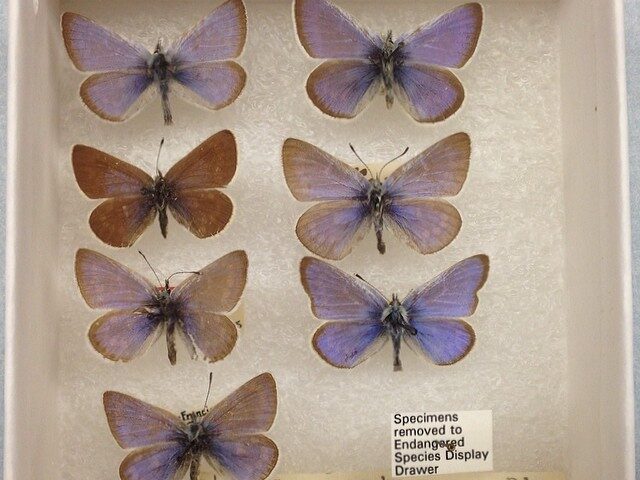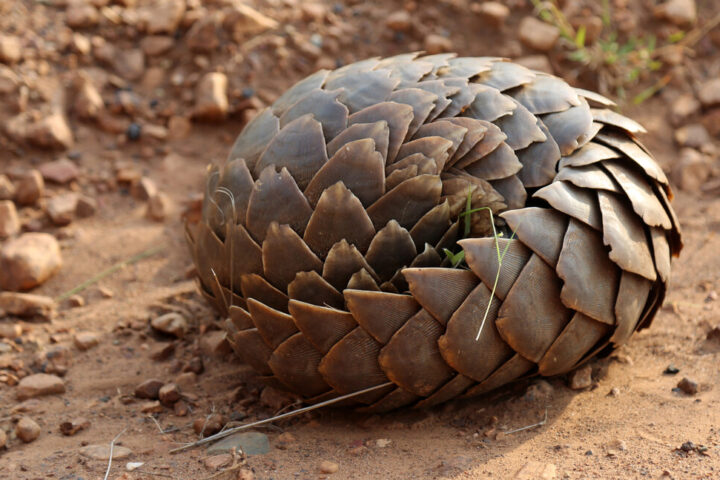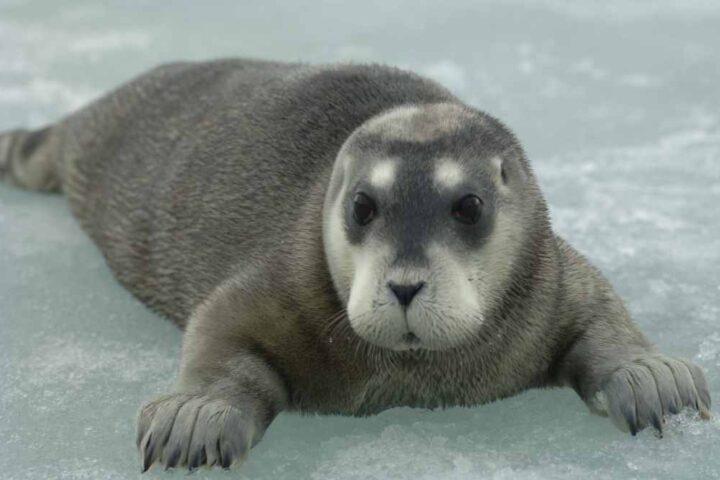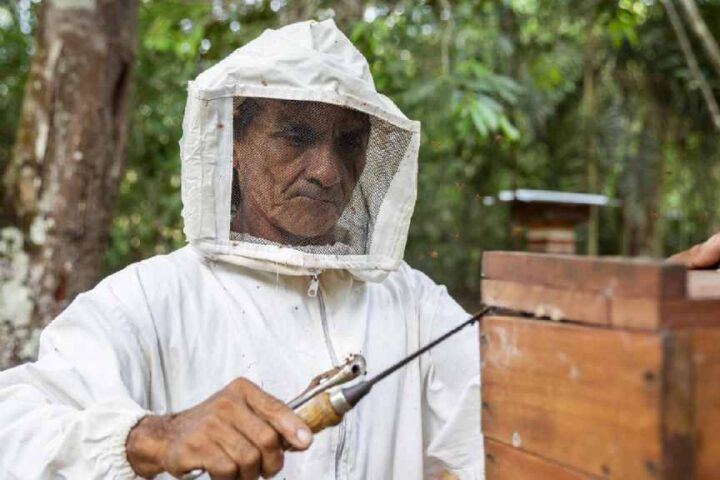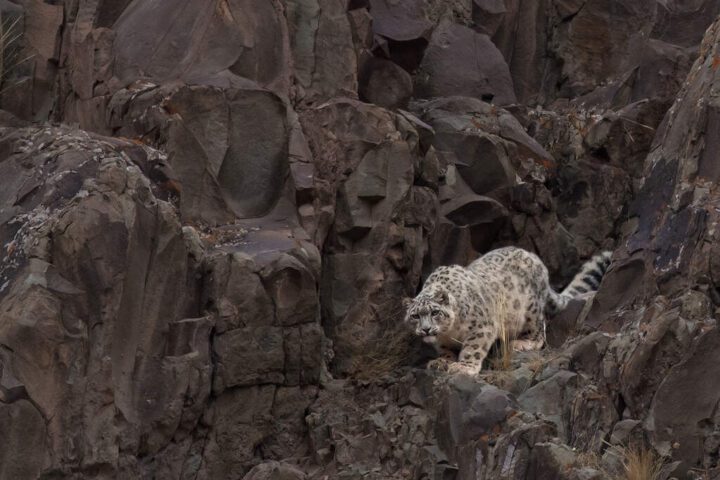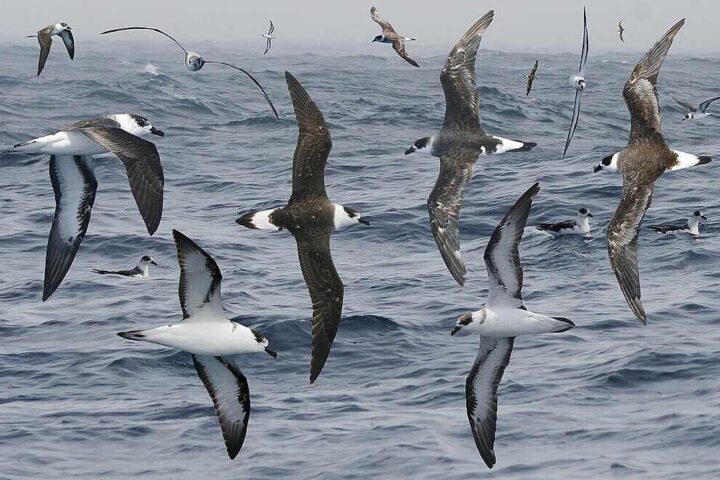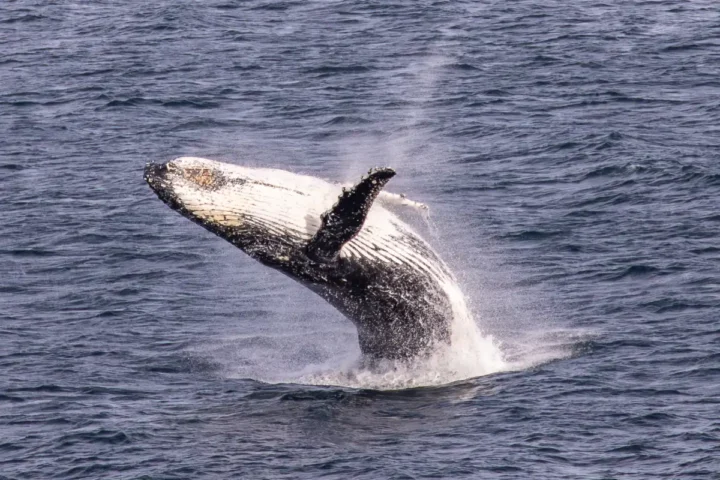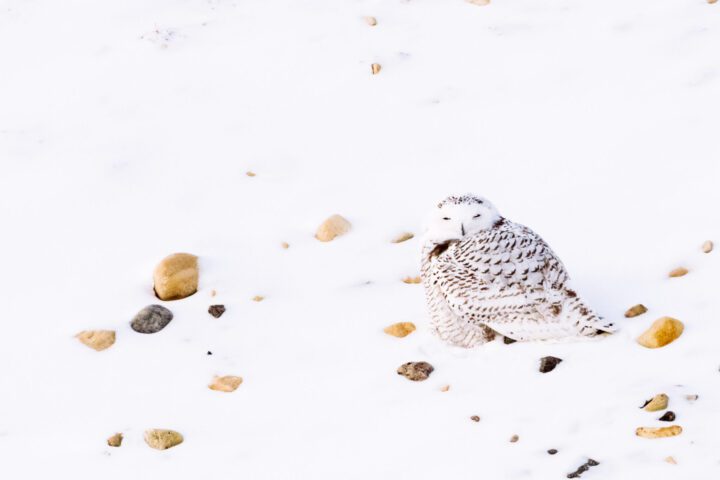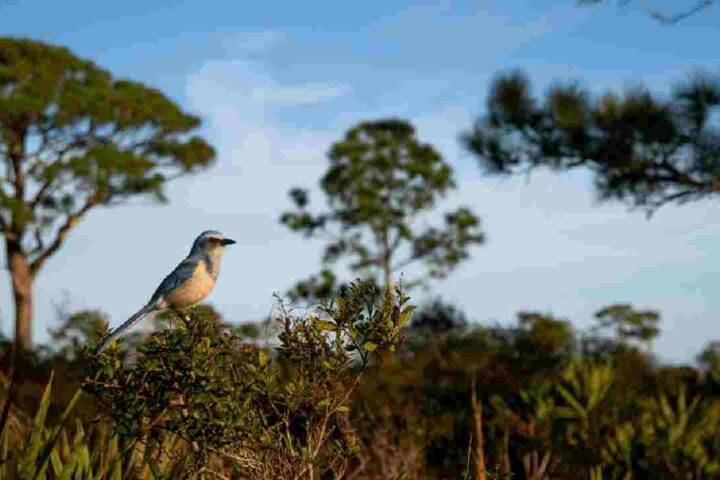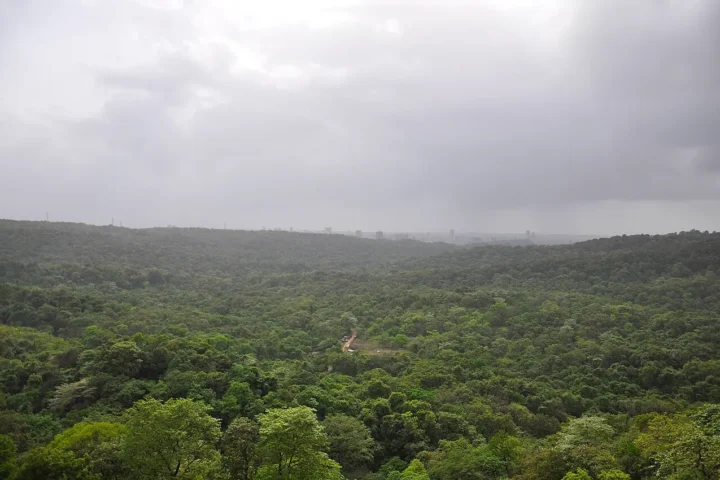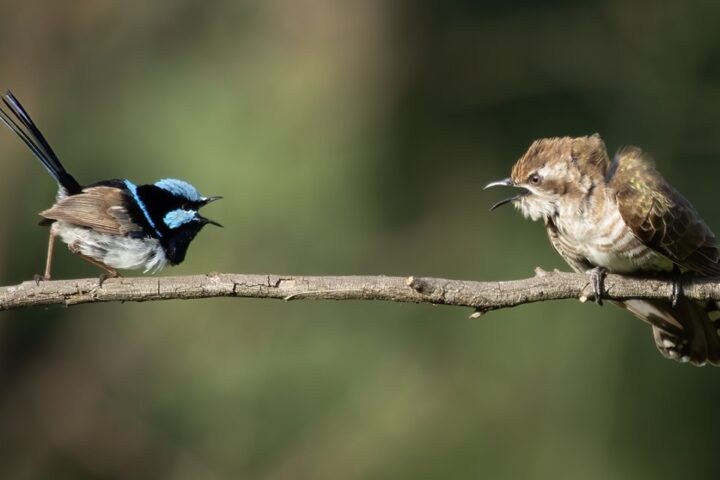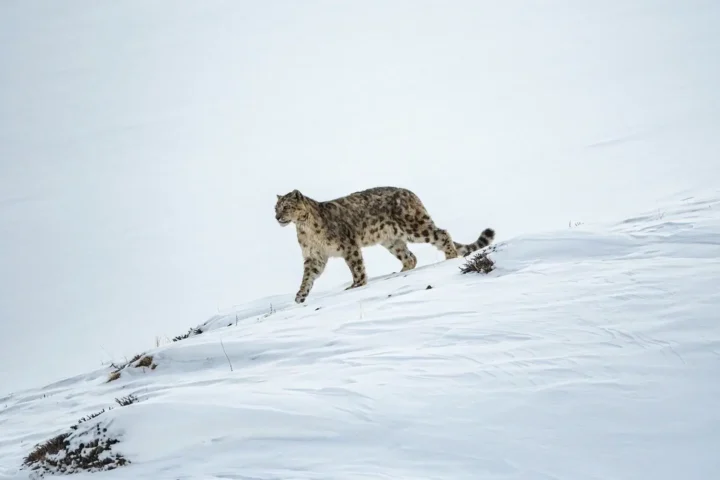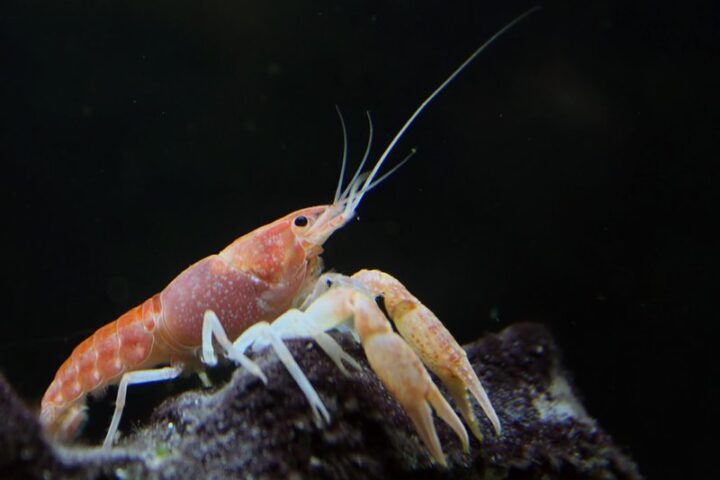An endangered secretary bird chick is thriving at Longleat Safari Park after being hand-reared by dedicated keepers. The chick, now five weeks old, has become a vital addition to global conservation efforts for this distinctive African bird of prey.
Born to seven-year-old Janine and nine-year-old Kevin, the chick required human intervention when the parents experienced difficulties with their eggs this breeding season. Matt Hardy, Lead Keeper of Lakes and Birds at Longleat, explained the situation: “The parents were having difficulties incubating their eggs this year and had a few eggs break or vanish. The egg was artificially incubated with the intention of returning it to the parents when hatching, but unfortunately, they had abandoned the nest at that point.”
The keepers quickly adapted to the challenge. “When first hatched the chick was getting five to six feeds per day, but now that it has grown the feeds have reduced to three per day,” Hardy said. “The chick is thriving and we hope will be another successful addition to the breeding programme.”
This birth marks the second successful breeding for Janine and Kevin, who arrived at the Wiltshire safari park in 2018. Their first chick, born in 2021, now lives at a zoo in Singapore. The latest arrival is part of a larger European breeding program that has produced eight chicks in the past year, including two at Longleat.
Secretary birds, scientifically known as Sagittarius serpentarius, have faced rapid population decline in recent years. In 2020, the International Union for Conservation of Nature (IUCN) changed their status from “Vulnerable” to “Endangered” on the Red List of Threatened Species, reflecting serious concerns about their survival.
Fewer than 10,000 mature secretary birds are estimated to remain in the wild across sub-Saharan Africa. These birds stand out with their distinctive appearance – long, stork-like legs, a robust body, and a crest of black feathers resembling old-fashioned pens that secretaries once tucked behind their ears, which gave the species its common name.
The secretary bird faces multiple threats in its natural habitat. Extensive conversion of grasslands for agriculture has destroyed much of their territory. Other significant challenges include afforestation (the creation of forests in previously open areas), overgrazing by livestock, and woody vegetation encroaching on their preferred open grasslands.
Direct human impacts also threaten these birds. They frequently die from collisions with power lines and wind turbines. Pesticide poisoning from agricultural chemicals poses another serious risk. Climate change has increased drought conditions in many parts of Africa, reducing the availability of the snakes, lizards, and other prey these birds depend on.
Similar Post
The birds are known for their unique hunting technique – using their long legs to stamp on prey with tremendous force. A secretary bird can strike with a force up to six times its body weight in just 15 milliseconds, making them effective hunters of snakes and other reptiles.
Conservation efforts for secretary birds take place both in the wild and in controlled environments like Longleat. In Africa, organizations such as BirdLife South Africa lead crucial research, tracking birds with GPS devices to better understand their movements and habitat needs. One tracked bird named “Ekapa” provided over 152,000 data points covering nearly 20,000 kilometers over 1,400 days, offering valuable insights into the species’ behavior.
Zoos and safari parks play a vital role through breeding programs that maintain genetic diversity. These controlled populations serve as a safety net against potential extinction in the wild and may provide birds for future reintroduction efforts if conditions improve.
Secretary birds typically live between 10 and 15 years in the wild, with captive birds sometimes reaching 19 years. They mate for life and often hunt as a pair in their natural habitat. The species holds cultural significance in Africa, appearing on the South African coat of arms, where its outstretched wings symbolize growth and its snake-killing ability represents protection.
For now, the gender of Longleat’s new chick remains unknown. As it continues to grow under the careful attention of the park’s keepers, it represents a small but important step in the ongoing effort to protect this remarkable species from extinction.
The success at Longleat highlights how targeted conservation programs can make a difference for endangered species, even as they face mounting challenges in their natural habitats. Each new birth offers a chance to maintain healthy populations and increase understanding of these unique birds.
